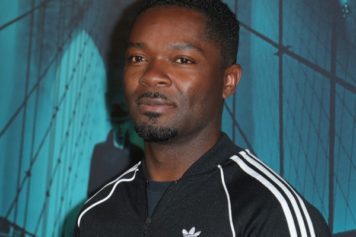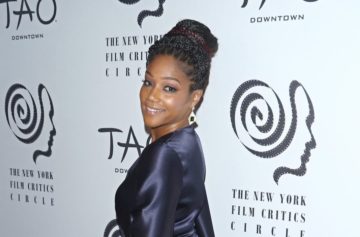In the midst of some major award snubs for the movie Selma, Common took home the only Golden Globe Award for the historic drama with his original song “Glory.”
Now the hip hop star is opening up about how the song came about and how working on Selma altered his perspective of the Civil Rights Movement and its leaders.
Common, whose real name is Lonnie Rashid Lynn Jr., has always been known as one of the conscious lyricists in the rap game, so it was no surprise that his powerful lyrics in “Glory” became a highlight of the award season.
He drew inspiration from both historical movements like Selma and the current movements that have swept the nation following the deaths of unarmed teen Michael Brown and unarmed Staten Island father Eric Garner.
“That’s why Rosa on the bus/ That’s why we walk through Ferguson with our hands up,” Common raps on the first verse of the song. “When it go down we woman and man up/ They say, ‘Stay down,’ and we stand up. Shots, we on the ground, the camera panned up. King pointed to the mountain top and we ran up.”
Two verses of strong lyrics like these are strung together by a powerhouse vocal performance by John Legend, an artist Common says he knew he had to work with as soon as he was asked to write an original piece for Selma.
“Ava DuVernay talked to me about doing a song,” he told the Wall Street Journal. “While she was in the editing process I just took the initiative and said, you asked me to do this song, and I’m going to speak with John Legend. I think he would be perfect and a powerful voice.”
Needless to say, he was right.
Common explained that his lyrics were inspired not only by history but by the fact that people are still fighting for justice even today.
“…I wanted to talk about how we all are a part of the fight for humanity,” he continued. “I wanted to show that what took place then, happens now. We’ve come a long way, but we have a long way to go.”
Common does more than provide incredible lyrics for the film. He also stars in the movie as James Bevel, the legendary Civil Rights leader who passed away in 2008.
Common never had the chance to meet the man he was being asked to portray, but he had seen the powerful figure in action before.
“Ironically enough, I was at the Million Man March that took place in 1995 and he spoke,” he said. “He’s known for having brilliant ideas about strategizing, waiting to move forward for human rights and for the people.”
For that reason, Common said he was incredibly honored that DuVernay asked him to take on that role.
“I came on to Selma because Ava DuVernay said I was the person she thought would be a good James Bevel,” he continued. “When she told me that, I was overwhelmed and excited.”
Selma earned four Golden Globe nominations, but Common and John Legend’s impeccable collaboration brought home the film’s only award of the night.
The song has also earned an Oscar nomination for Best Original Song.
Not everybody was able to focus on the joy of the Golden Globe win and Oscar nomination, however, as what has been one of the “whitest” Oscars left Selma without many other nominations.
Many Black actors and directors that were expecting Oscar nominations were left empty handed and many have pointed out the stunning lack of diversity in this year’s nominees.
“In the time of Staten Island and Ferguson, to have one of the most shutout Oscar nights in recent memory is something that is incongruous,” Rev. Al Sharpton told The News.
Moviegoers were particularly disappointed that DuVernay’s name was missing from the best director category because she would have been the first Black woman to receive a nomination for that category.
“A lack of diversity remains a serious problem in Hollywood, where the voices of African-Americans, Latinos and Asian-Americans have historically been excluded from film studios, from the Academy of Motion Picture Arts and Sciences, and on screen,” New York Democratic Rep. Yvette Clarke told The News. “Our films should reflect the diversity of our society in the 21st century.”


